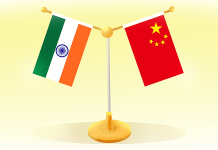In a landmark ruling dated May 9, 2025, the Supreme Court of India set aside a controversial order passed by the Delhi High Court that had directed the Wikimedia Foundation to take down a Wikipedia article related to its legal dispute with Asian News International (ANI).
In This Article:
The apex court stressed that such judicial takedown orders could infringe upon the right to free speech and public access to information, urging lower courts to exercise greater caution when fundamental rights are involved.
Background: The ANI–Wikipedia Dispute
- In 2024, ANI filed a defamation suit against Wikimedia Foundation.
- The issue was with a Wikipedia article that referred to ANI as a “propaganda outlet”.
- ANI claimed reputational damage and requested the content be removed.
- The Delhi High Court granted interim relief and ordered takedown of the content.
Supreme Court’s Reasoning
- The Supreme Court reversed the takedown order, emphasizing that Wikipedia is a crowd-sourced platform, and intermediaries like Wikimedia should not be penalized without due diligence.
- The Court highlighted the chilling effect such orders can have on free speech, especially in a digital age.
Fundamental Rights Involved
According to the Indian Constitution:
- Article 19(1)(a): Guarantees the Right to Freedom of Speech and Expression.
- Article 21: Includes the Right to Life and Personal Liberty, which the Court has interpreted to include the Right to Know.
The Wikimedia case has become a touchstone for these rights in the context of online information.
Key Takeaways from the Verdict
1. Protection of Public Access to Information
The judgment underscores that democratic discourse and transparency must be prioritized over censorship when dealing with public information.
2. Intermediary Protection
The Court clarified that platforms like Wikipedia are not directly responsible for content unless they fail to act upon unlawful material post-notification.
3. Balance Between Reputation and Free Speech
Reputation concerns must not overshadow the broader constitutional promise of free expression.
Why High Courts Must Be Cautious
High Courts, as custodians of justice, must:
- Carefully assess the constitutional implications of their orders.
- Ensure that fundamental rights like freedom of speech, public debate, and right to know are not trampled.
- Avoid issuing sweeping orders that undermine press freedom or digital autonomy.
Moving Forward: A Call for Judicial Sensitivity
The Supreme Court’s ruling is a timely reminder that the judiciary must uphold constitutional values, particularly in the digital domain. The Wikimedia case sets a precedent that fundamental rights must be preserved even in the face of reputation-related litigation.
This is not just a victory for Wikimedia, but for the right to know, the freedom of expression, and the integrity of digital platforms across India.
By – Nikita




